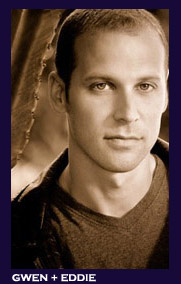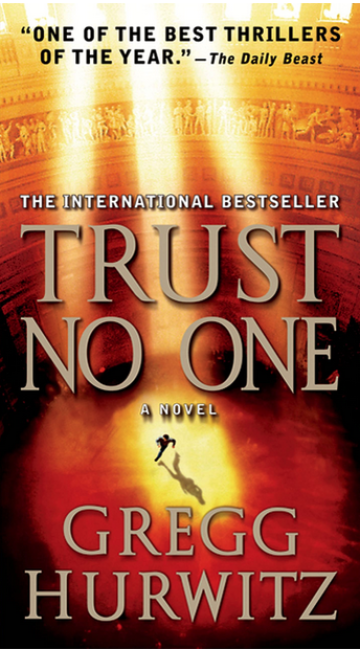Doing It Right: Interview with Gregg Hurwitz
Los Angeles. The city of (fallen) angels has lured many crime fiction writers over the years, its truths often stranger than fiction. From Hollywood to Echo Park, L.A. is a siren song of corruption, racial tension, drugs, and silicone implants. Perfect grist for a writer's mill. Its urban sprawl screams for stories to chronicle its bittersweet existence, yet few succeed in the task. Those that have, are famous beyond L.A's zip code—writers like Chandler, Ellroy, and Connelly. Let's add one more to the list: Gregg Hurwitz. This June, American readers of can read his latest thriller Trust No One (352 pages, St. Martin's Press, $24.95), which the Europeans devoured last year under the title We Know.

But regardless of which time-zone you live (or read) in, set aside a couple of days without interruption. Once you begin a Hurwitz novel, all other daily activities tend to be put on hold. The novel's opening literally explodes, with a SWAT team breaking into Nick Horrigan's home in southern California. A Black Hawk helicopter whisks him off to negotiate with a terrorist. Set in post-9/11 America where the boundary between ally and enemy tends to blur or be fluid, Horrigan discovers that he must reckon with his past if he is to survive. As in his other novels—most notably his tertralogy featuring US Marshal Tim Rackley—Hurwitz depicts his characters through action. Suspenseful in the extreme, his stories also wrestle with larger themes such as justice and vigilantism, vengeance and culpability.
Despite the grandeur of his themes, however, this writer's feet are firmly placed on the ground. Whether he is writing novels, screenplays, or Wolverine comics, Hurwitz describes writing as fundamentally ‘blue collar', and ‘like carpentry.' ‘I like loud keyboards,' Hurwitz confesses, ‘so it sounds like I am working. Like I'm hammering, nailing, pasting. That's the closest element—like I'm constructing a building.' Such a straightforward sentiment may cause his former professors at Harvard and Cambridge University to blink, where he received his Masters in Shakespearean Tragedy.
Upon closer examination, however, perhaps linking his books to plays like Hamlet or MacBeth is very apt indeed. Many of Hurwitz' novels read like revenge tragedies, blending visceral action with dramatic themes. And like any good playwright, Hurwitz writes with swift economy and entertainment. ‘In L.A., everyone wants to be a writer, but no one wants to write,' Hurwitz says with a smile. ‘Everyone likes the dust-jacket and the book signing tour, but it's the most unglamorous job in the world. You wake up, you go down the hall, you sit down for 10 hours, you write.' When pressed, Hurwitz admits that while writing involves discipline and consistency, it must also ‘be elevated to something else.' ‘When you're inspired, you don't need any help,' Hurwitz explains. ‘A professional needs discipline, structure. Bringing up the bottom of your game. Escalating that, so that every time you sit down, you are conditioned to produce.' Trust No One is the latest accomplishment from a professional passionate in his craft. Hurwitz does it right, writing from the gut with muscularity and smarts. For Hurwitz, ‘writing is a sport,' and this latest will leave you breathless.
Gregg Hurwitz is the author of The Crime Writer, Minutes to Burn, Do No Harm, The Tower, and the series featuring Tim Rackley: The Kill Clause, The Program, Troubleshooter, and Last Shot. Mr. Hurwitz lives with his family in Los Angeles.

 Born in California, McCall is an actor, director, and choreographer whose work has been presented internationally. He has taught at institutions such as the Yale School of Drama, New School for Drama, New York University, the Atlantic Acting School, the American Academy of Dramatic Arts, among others. He lived in New York City for 18 years before moving to Oslo in 2008, where he is the Director of The International Theater Academy Norway (TITAN), a 2-year professional theater education program combining innovative artistic craft with practical entrepreneurship. For more information, see
Born in California, McCall is an actor, director, and choreographer whose work has been presented internationally. He has taught at institutions such as the Yale School of Drama, New School for Drama, New York University, the Atlantic Acting School, the American Academy of Dramatic Arts, among others. He lived in New York City for 18 years before moving to Oslo in 2008, where he is the Director of The International Theater Academy Norway (TITAN), a 2-year professional theater education program combining innovative artistic craft with practical entrepreneurship. For more information, see